Sustainability for San Diego and Beyond
SDSU is leading collaborative efforts to prepare the region to prosper in the face of climate change
By Sarah White
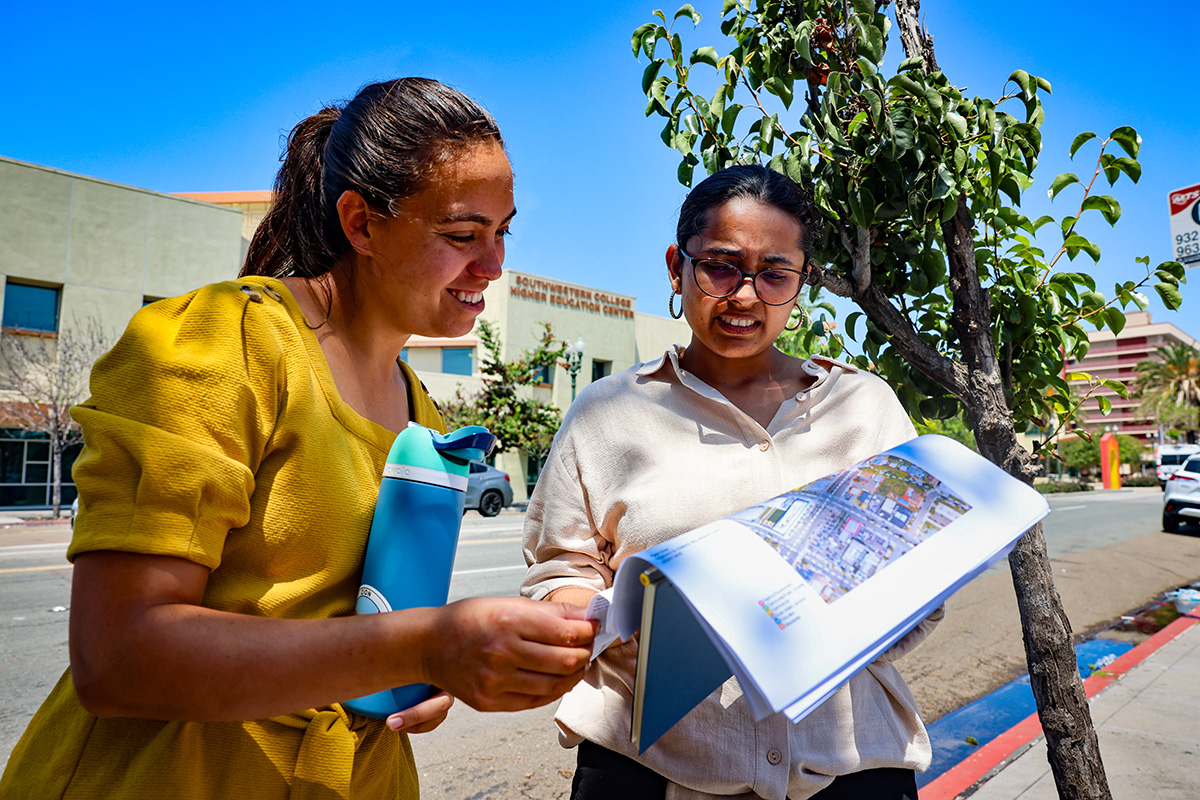
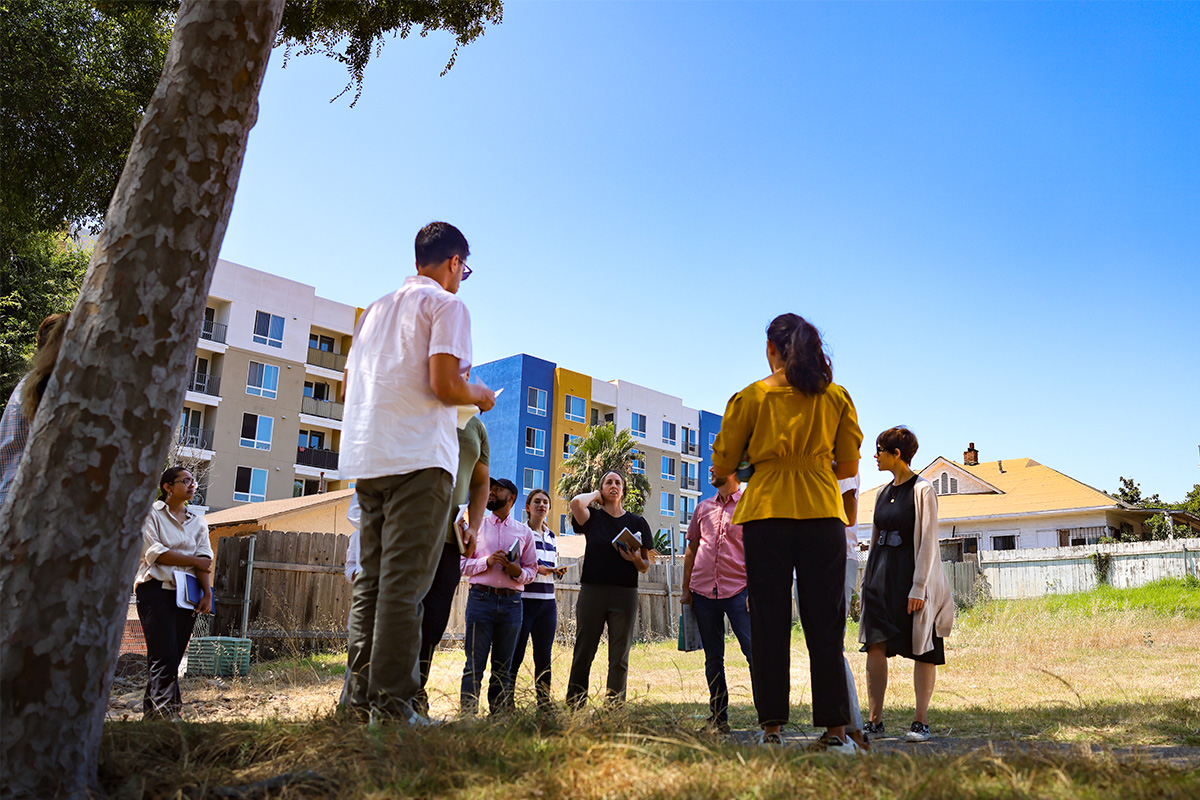
Local policies transform neighborhoods
A welding shop, a former educational center, an abandoned dry cleaner and a vacant lot of overgrown grass. These are some of the sites across National City identified as having potential for redevelopment into affordable housing, community gardens or public transit centers.
However, they are also likely to be brownfields — sites with potentially unsafe levels of hazardous substances like heavy metals, chlorinated cleaning products and petroleum derivatives. Researchers with SDSU’s Brownfields Assessment Project, part of the SDSU Center for Regional Sustainability, are cataloging these locations and testing the soil for pollutants.
This team is sharing their findings with government officials and National City residents so community members can be more informed of the environmental and health concerns in these areas and make plans to remediate any toxic threats.
“They prioritize certain parcels that have the potential to do more than just clean up the soil,” said Carlos Aguirre, director of the National City Housing Authority. “They will actually be developed into areas where the community can thrive economically, socially and academically.”
Also in National City, sixth graders learned to express their experiences with climate change through music. Through the EARTH-Hop program (short for Environmental Action and Response Team Hip-Hop), SDSU student mentors led workshops on sustainability, poetry, music production and art. The young artists wrote lyrics, recorded songs and created album artwork about the ocean, pollution and other aspects of sustainability.
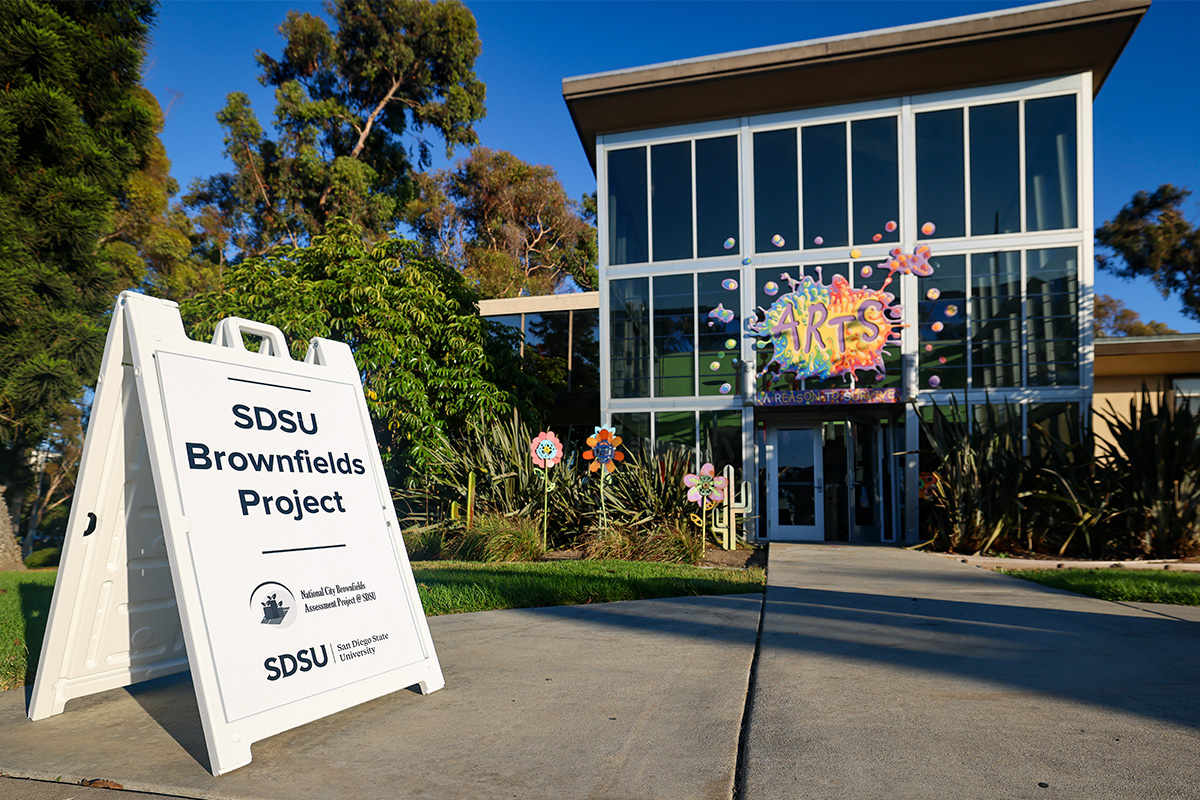
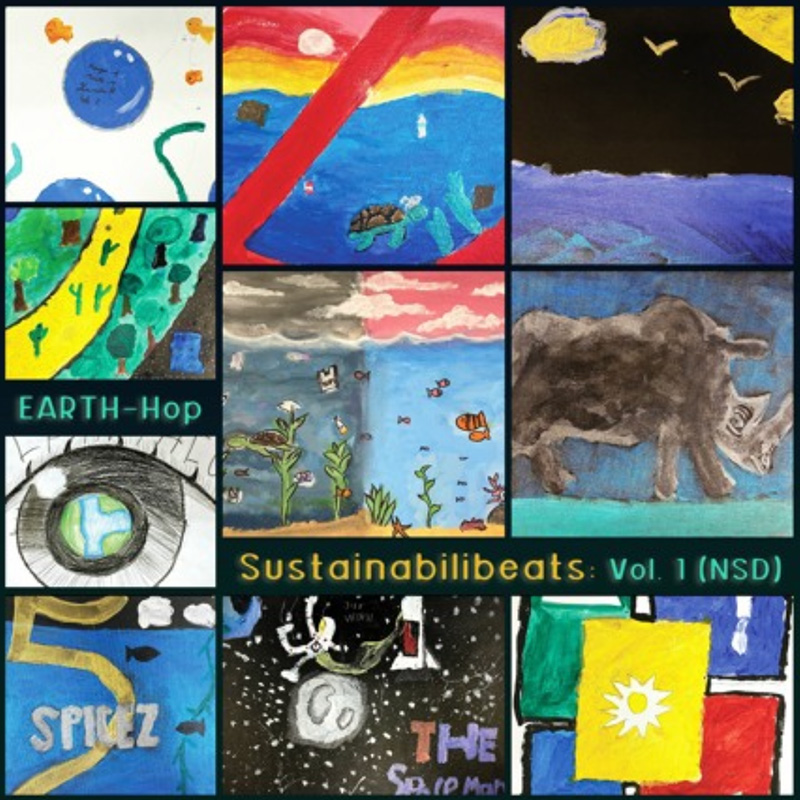
Ramping up efforts for the region
In alignment with California’s push toward achieving carbon neutrality, SDSU has been working closely across sectors throughout Imperial and San Diego counties to plan ways to sustainably invigorate the economy in the border-adjacent region.
As part of the Southern Border Coalition for the California Jobs First initiative, SDSU and its partners are engaging with and learning from disinvested community members, grassroots and nonprofit organizations, government agencies, labor organizations and other stakeholders about their visions for a local economy that benefits everyone.
The coalition and local leaders representing LGBTQIA+, youth, tribal and other communities are conducting economic analyses of the kinds of jobs that are most needed.
Collectively, they will decide how to funnel $14 million in funds for opportunities to grow in clean tech, green energy and other industries while balancing concerns about equity and safe working conditions.
“Disinvested and marginalized communities often bear the brunt of carbon-intensive industries,” said John McMillan, principal investigator for the Southern Border Coalition grant and SDSU’s assistant vice president of economic development.
“The coalition is intentionally designed around addressing that inequity and ensuring that these communities not only benefit from the transition to a net-zero economy but are empowered to take an active role in the economic development planning and implementation process.”
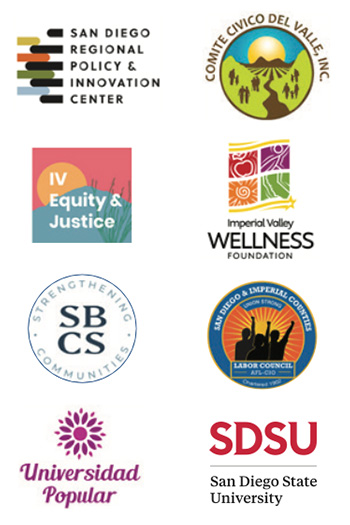
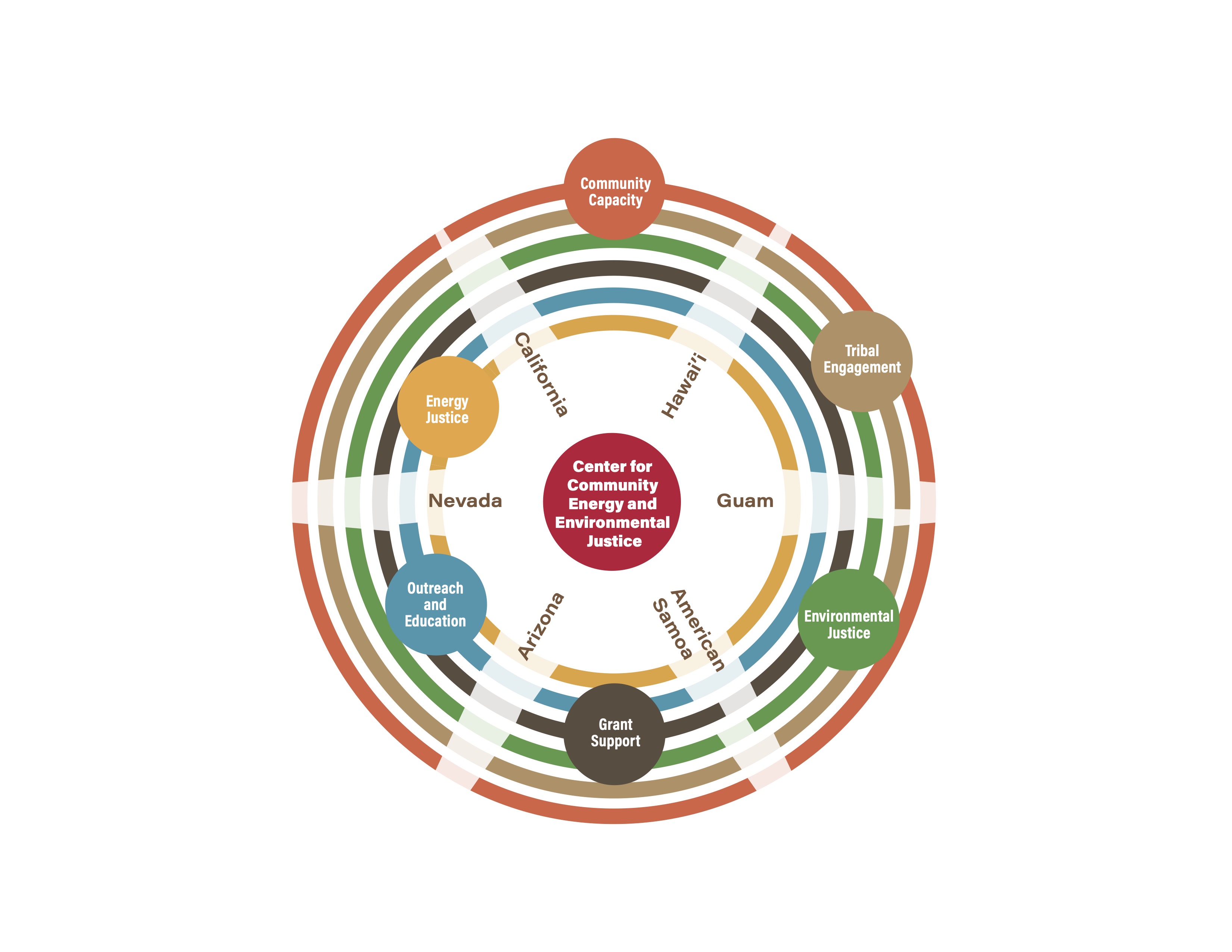
Assistance for all
Throughout the western United States and territories, communities are looking to SDSU leaders for help realizing their climate justice goals. The Environmental Protection Agency named SDSU as the home of one of 17 technical assistance centers nationwide with the mission of connecting organizations and individuals with funding for climate justice initiatives.
These connections are made possible through the new SDSU Center for Community Energy and Environmental Justice, which builds on SDSU’s decades of community-embedded research and outreach, particularly with Indigenous communities and climate-focused projects.
The center is the starting point for community organizers in California, Arizona, Nevada, Guam, Hawaii, American Samoa and the Northern Mariana Islands to access services that increase their capacity to successfully obtain grant funding.
Initial services include data collection and analysis, translation and interpretation, as well as guidance to identify grants and navigate government application processes.
SDSU President Adela de la Torre said, “As the only California university selected to lead this work, this is clear recognition of our faculty’s ability and passion to foster mutually beneficial relationships with tribal and other key communities. And this empowerment focus is exactly what makes SDSU distinct as a major research university. Our focus is not just on the idea but on creating a sustainable and positive impact.”